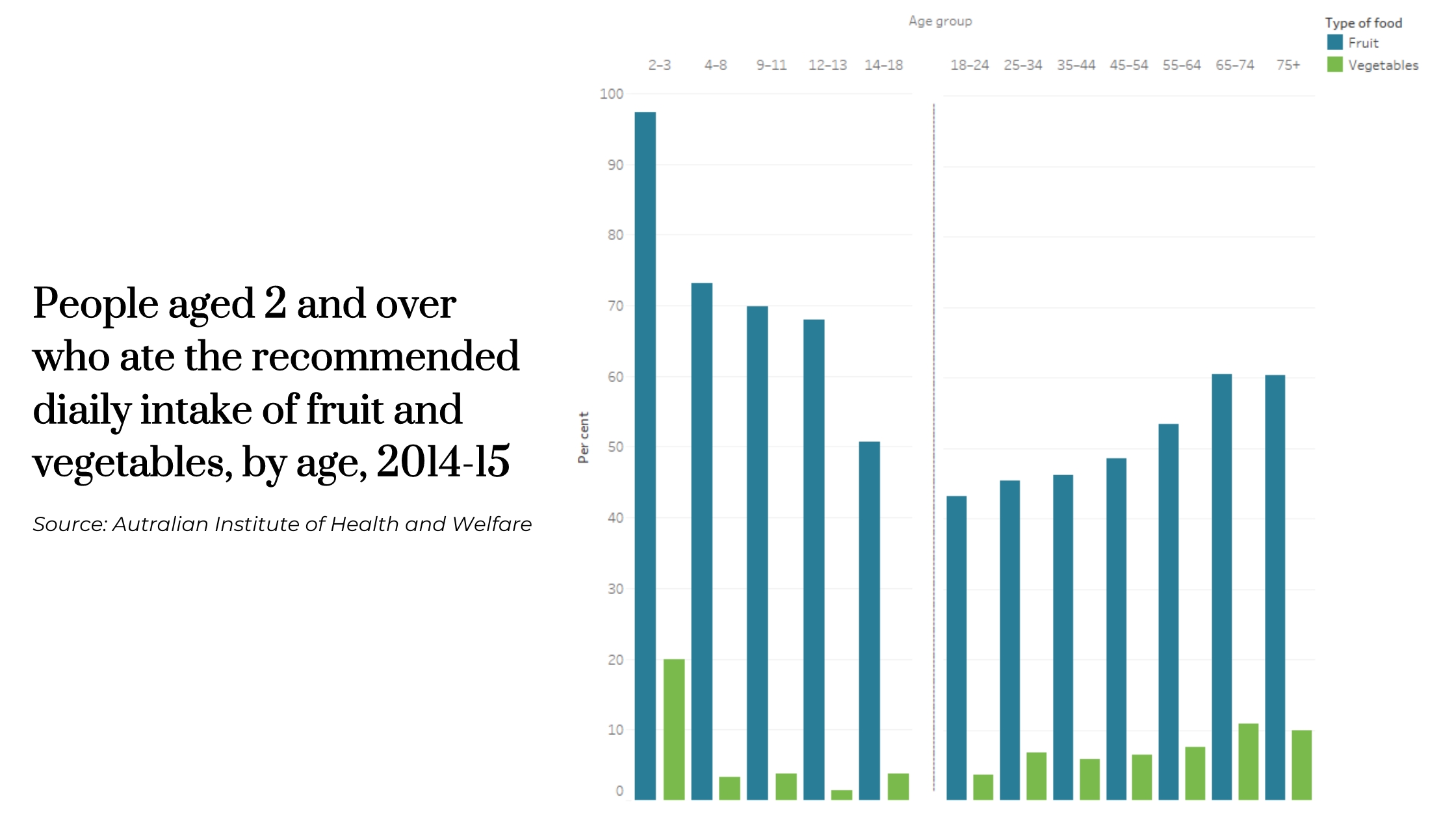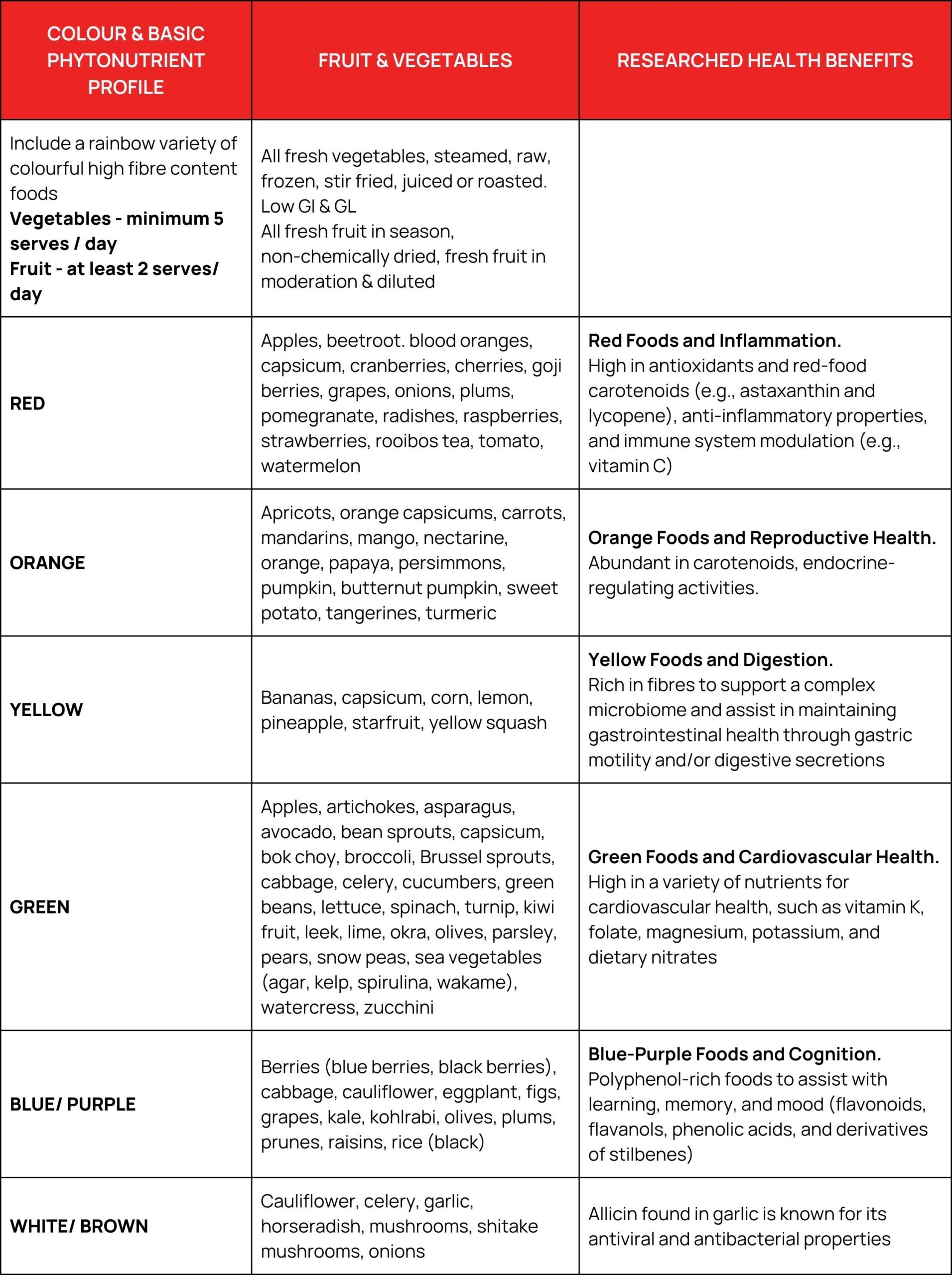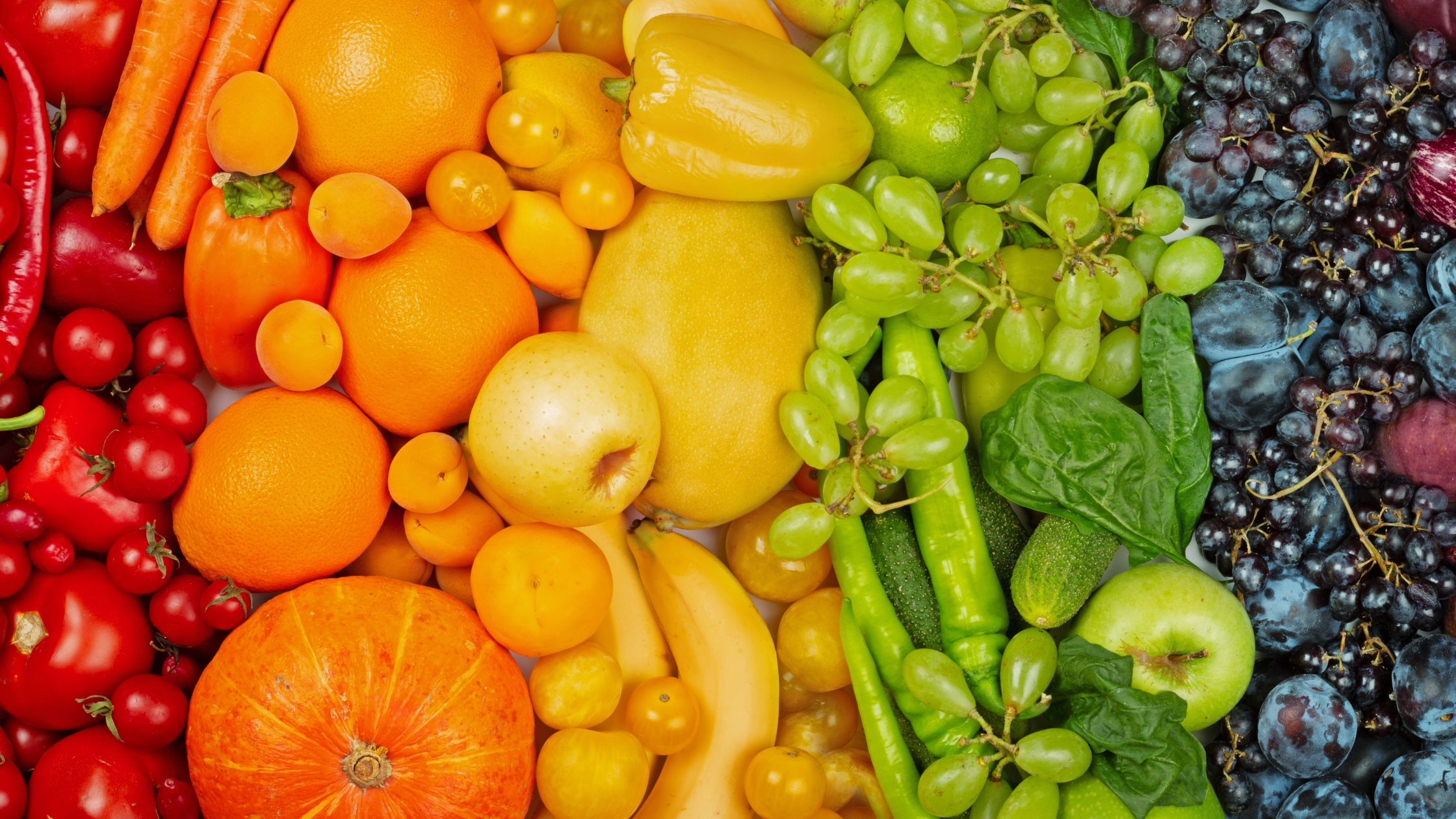What happens when you pump diesel into your car that runs on ultra-high unleaded petrol?
Our body is like a finely tuned machine, and food is the fuel that keeps it running smoothly. Just as a car requires high-quality fuel to perform at its best, our bodies rely on nutritious, wholesome foods to function optimally.
Unfortunately, we don’t always fuel our bodies with the best type of food. Poor food choices increase our likelihood of developing cardiovascular disease, type 2 diabetes, obesity, dementia, and kidney disease, to name a few. The food we eat and the beverages we drink can significantly impact our health.
A large Australian study found that a diet rich in fruits and vegetables was associated with lower perceived stress, especially in midlife adults aged 45 to 65. Veggies and fruits are a source of vitamins, minerals, and phytonutrients such as flavonoids and carotenoids, which can reduce oxidative stress and inflammation. Inflammation and oxidative stress are factors that contribute to stress, anxiety, and lower mood.
If you were to start by changing just one thing, I would suggest eating a rainbow of coloured veggies and fruit and counting your colours daily for health. Australian healthy eating guidelines recommend that women transitioning through menopause eat at least five servings of colourful vegetables and two pieces of fruit daily to take advantage of short-term and long-term benefits.

Source: ABS 2015d; Table S1.4.15.
Note: NHMRC guidelines define children as aged 2 to 18 and adults as aged 19 and above. ABS data are presented for children aged 2 to 18 as per NHMRC guidelines and adults aged 18 and over as per the standard definition for adulthood. Hence, 18-year-old people are included in two age groups and data should be considered separately for children and adults.
When researchers looked at 95 different studies, they found that a diet rich in various coloured veggies and fruits is associated with a reduced risk of cardiovascular disease (heart attack, heart disease, and stroke), cancer, and premature death.
Further findings even discovered that apples, pears, citrus fruit, green leafy vegetables/ salads, and cruciferous veggies reduced the likelihood of cardiovascular disease and premature death. On the other hand, green-yellow and cruciferous vegetables reduced cancer risk.

Source: Minich D. M. (2019). A Review of the Science of Colorful, Plant-Based Food and Practical Strategies for “Eating the Rainbow”. Journal of nutrition and metabolism, 2019, 2125070. https://doi.org/10.1155/2019/2125070
Effects of Food on a Cellular Level
Do you realize that what we eat communicates with our bodies on a cellular level, influencing our genes, cellular functions, and overall health? How does that work?
If you think of your body as a complex machine and the food you eat as the fuel you put into it, then it is reasonable to assume that good quality fuel helps your machine run smoothly and efficiently.
Every part of your body is made up of tiny units called cells. These cells need the proper nutrients from food to function well. In every cell, genes can be thought of as instruction manuals that dictate how the cell should work. Some foods contain molecules that can “talk” to these genes, and depending on the message from the food, genes might “turn on” or “turn off” certain functions.
For instance, some foods might tell a gene to protect the cell against damage, while others might cause harm. If your cells get the right messages and are healthy, they can do their jobs well. If they get the wrong messages from poor nutrition, they might not function properly, leading to health problems.
Over time, lots of unhealthy cells can lead to bigger health issues. And, if cells are stressed or damaged because of poor nutrition, they send signals that can negatively affect how other cell functions or genes operate. So, in essence, eating the wrong things can have ripple effects throughout your body.
Benefits of Eating a Rainbow of Fruits and Veggies

Although there are detrimental effects to eating unhealthily, on the brighter side, consuming sufficient vegetables and fruits brings a positive outcome to your health. Here are some of the ways in which it contributes to your well-being.
It Helps Us Acquire Phytonutrients and Antioxidants
Fruits and vegetables contain vitamins, minerals, and phytonutrients. These compounds communicate with our cells, promoting cellular health and fighting against oxidative stress, which is a primary factor in aging. For midlife women, antioxidants can help reduce the risks of age-related conditions.
It Helps With Hormonal Balance
As women approach menopause, their hormonal levels fluctuate. Certain foods can exacerbate or mitigate these fluctuations. Phytoestrogens found in foods like soy and flaxseeds can mimic estrogen in the body, potentially aiding in hormonal balance.
It Promotes Better Bone Health
Women are at a higher risk of osteoporosis with age. Leafy greens and some fruits are rich in calcium and vitamin K, which are crucial for bone health as they provide the body with the necessary “information” to build and maintain strong bones. Research suggests that “Consuming less than five servings per day of fruit and vegetables is associated with a higher hip fracture risk. Adherence to a Mediterranean diet or to a prudent diet is associated with a lower fracture risk.
It Promotes Good Digestion
Our digestive system becomes less efficient as we age. Fruits and vegetables are rich in dietary fibre, which supports digestive health, prevents constipation, and reduces the risk of colon diseases. And a healthy digestion is what we need for optimal nutrient absorption.
It Helps Maintain a Healthy Heart
Cardiovascular diseases remain a significant concern for midlife women. Studies have found that high consumption of plant-based foods, such as fruit and vegetables, nuts, and whole grains, is associated with a significantly lower risk of cardiovascular disease.
The antioxidant vitamins and minerals, phytochemicals (plant chemicals), fibre, and plant proteins in fruits and vegetables play a role in heart health. They help regulate blood pressure, reduce cholesterol levels, and improve arterial health.
It Supports Cognitive Function
The aging process also affects cognitive functions. It has been reported that randomized clinical trials support the role of plant foods (citrus fruits, grapes, berries, cocoa, nuts, green tea, and coffee) in improving specific domains of cognition, most notably frontal executive function”.
It Promotes Skin Health
Aging is often most visibly noticed in the skin. Vitamins C and E, commonly found in fruits and vegetables, support collagen production and better skin-aging appearance.
It Helps With Weight Management
As we age, our metabolism tends to slow down, so maintaining a healthy weight becomes a challenge. Luckily, eating an adequate amount of vegetables and fruits assists with our diet.
Eat Healthily To Live Healthily
In a nutshell, what you eat communicates with your cells and genes. It’s like giving them instructions on how to behave. Good food gives good instructions, helping you stay healthy, while bad food has a bigger risk of giving bad instructions, which potentially causes problems.
And, if you plan to avoid risky health issues that come with an unhealthy diet, research suggests that obtaining plant-based nutrients by eating a wide variety of whole-food fruits and vegetables is a more feasible approach than spending on expensive dietary supplements.
Remember that every bite is an opportunity to invest in your well-being. Our food choices are the key to preventing health roadblocks like cardiovascular issues, diabetes, and obesity. Making meaningful changes today in things you do, in my opinion, is a form of real health insurance to become the best version of yourself now for your future self, twenty, thirty or forty years from now. So, let’s begin our journey today towards a healthier life by starting it off with a burst of colors on our plate.
Enjoyed This Article? You Might Like These Too…
Living Vibrantly: Nourishing Your Mind, Body and Soul
How to Savor Every Bite: A Guide to Practicing Mindful Eating
Beyond the Mat: Discovering the Profound Effects of Restorative Yoga

